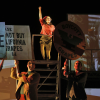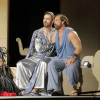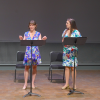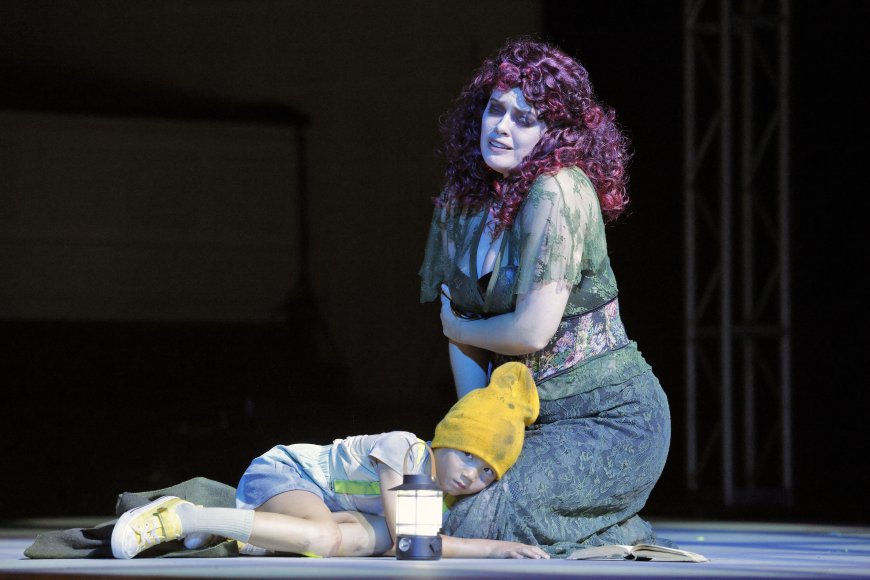
Alban Berg’s Wozzeck may be opera’s ultimate story about what to avoid as a society. In stage director Elkhanah Pulitzer’s words, “the opera reveals how choices driven by war, greed, and disregard for life cascade downward, devastating those with the least freedom and agency.”
Pulitzer brings that vision into sharp focus in her coruscating production of the 1925 work for West Edge Opera, which premiered on Saturday, August 9, at the Oakland Scottish Rite Center. Here, cruelty is omnipresent but not so graphic as to make the show unwatchable. Drunk or unhoused characters are stepped over; Marie barks angrily at her child, then instantly regrets it; bystanders observe brutality with indifference. These are the cruelties that connect the production to the audience, because they mirror the everyday apathy and moral compromises that many may recognize in themselves.
Violence drives the plot. Based on Georg Büchner’s unfinished play, the story concerns a mentally unstable soldier who is subjected to various abuses by his superiors and a physical beating from the drum major of the regimental band. Discovering the drum major is bedding his common-law wife, Marie, Wozzeck kills her and then drowns himself.
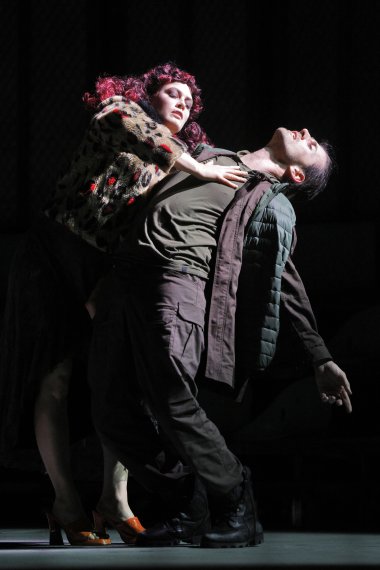
Pulitzer’s simple but effective concept sets the action in an operating theater with stark overhead lighting and green plastic chairs. Tanya Orellana’s brilliant set design evokes both the past and the present.
A working drain becomes central to the opera’s visual language. In the fourth scene, baritone Hadleigh Adams, as Wozzeck, kneels at the drain and is repeatedly doused with buckets of water as directed by the corrupt Doctor, portrayed by bass Philip Skinner. It’s a gesture that fully captures the soldier’s humiliation and torment.
In parallel, Wozzeck dumps a bucket of stage blood on Marie, played by soprano Emma McNairy, during the third act’s murder scene.
West Edge’s production is led by Music Director Jonathan Khuner, who created a festival last year to celebrate the birth of Berg’s mentor, Arnold Schoenberg. Khuner’s mastery of the expressionist style is unquestioned, and he showed it while conducting the cast and hefty orchestra of Wozzeck with a finesse that didn’t stint on barbarity.
You can’t do this opera, however, without emphasizing its lyrical moments of pathos. With Khuner at the helm, the musicians pivoted on a dime, giving the interlude after Wozzeck’s death a grand romantic sweep, evocative of Gustav Mahler.
As Wozzeck, Adams gave a performance of unrelenting intensity. His very physical portrayal of the role often juxtaposed stillness with fluidity, mirroring his vocal interpretation which was close to ideal. In Adams’s voice, the opera’s iconic solo, “Wir arme Leut” (“We poor folk”), stood out as it should. As both a vocalist and an actor, Emma McNairy’s Marie matched Adams’s agility as Wozzeck. Her portrayal seamlessly veered from the gentleness expressed in a lullaby to her son, to defiance that pushed her voice to its limits.
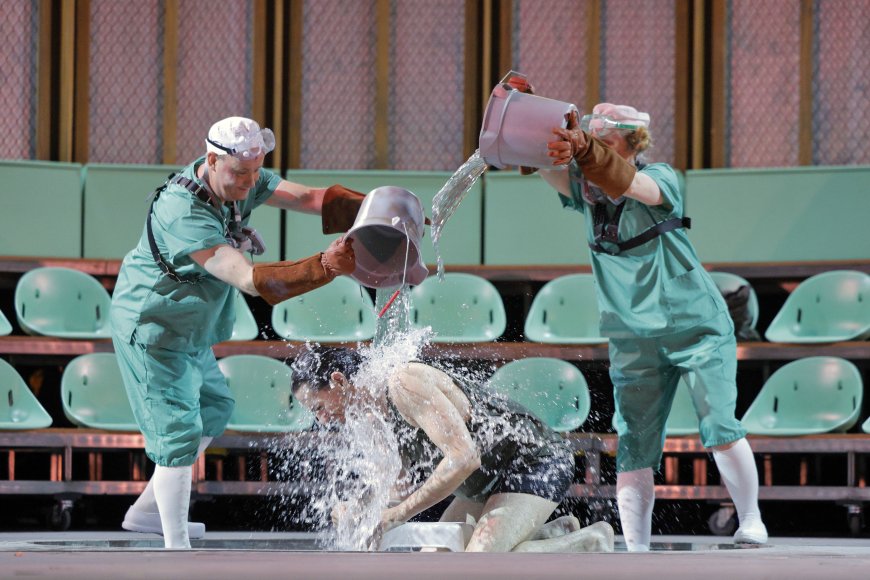
In the pivotal role of the Captain, tenor Spencer Hamlin sang with comic agility, revealing the cowardice behind the role’s bullying front. As the Doctor, Skinner was macabre. He beetled about on a rolling chair like an anthropomorphic spider while tormenting Wozzeck, and his sonorous bass projected easily over the orchestra.
In smaller roles, mezzo-soprano Silvie Jensen gave a strongly characterized Margret, tenor C. Michael Belle swaggered appropriately as the Drum Major and tenor Chad Somers brought his bright-hued timbre to the relatively sympathetic role of Andres.
A century after its premiere, Wozzeck still has the power to shock us out of complacency. Hopefully, it nudges us toward compassion as well.


